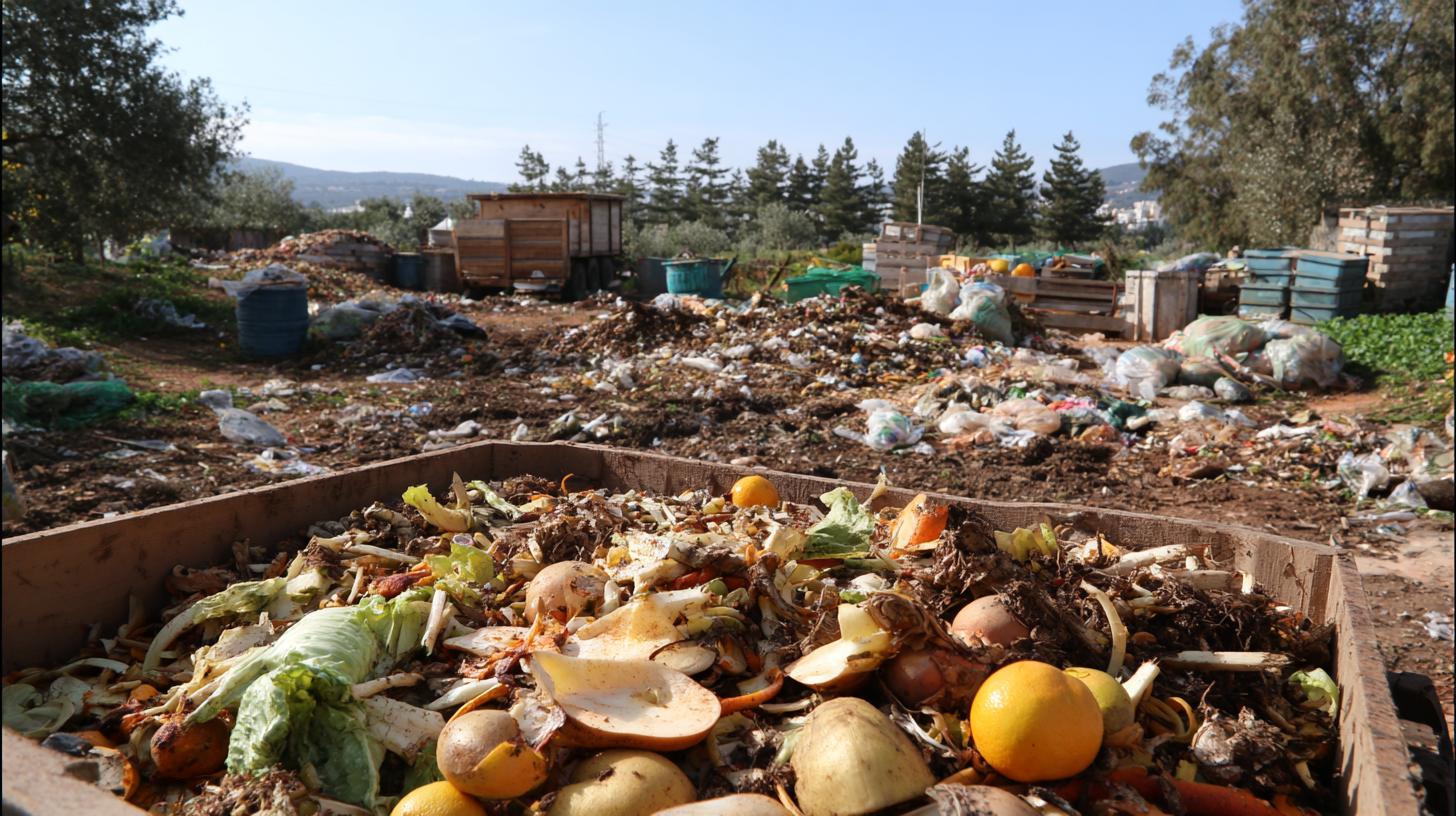In recent years, Cyprus has witnessed a growing awareness around environmental responsibility and the need for sustainable living practices. Among the vital strategies promoting a greener lifestyle are composting, home recycling, and waste reduction — all contributing directly to eco-friendly living in Cyprus. These efforts align not only with global sustainability goals but also address the unique challenges posed by the island’s climate, waste infrastructure, and consumer habits.
“Turning Orange Peels into Gold: Composting and Recycling Hacks for Cyprus Homes” encapsulates the essence of how everyday Cypriots can transform their organic and recyclable waste into valuable resources. This approach is foundational to reducing landfill dependency, curbing greenhouse gas emissions, and promoting resource efficiency at the household level. Understanding the technical framework and cultural implications behind these practices is critical for widespread adoption.
Understanding Composting in Cyprus: The Science and Practice
Composting is the biological decomposition of organic materials under controlled conditions, producing a nutrient-rich soil amendment known as compost. In Cyprus, where much organic waste originates from food scraps, garden debris, and agricultural byproducts like orange peels, composting is both a practical and eco-sensible solution to managing municipal waste.
The Mediterranean climate, characterized by hot, dry summers and mild winters, impacts composting dynamics. High temperatures accelerate microbial activity, but moisture retention can be challenging. This means Cypriot households need to balance moisture carefully to maintain aerobic conditions for efficient composting.
At its core, composting requires a balance between carbon-rich “browns” (dry leaves, paper, wood chips) and nitrogen-rich “greens” (fruit and vegetable scraps, coffee grounds). Orange peels represent a significant portion of organic waste unique to Cyprus due to local citrus cultivation. Their decomposition rate can vary due to their thicker peel and antimicrobial oils, which can inhibit microbial activity if composted improperly.
Proper management of orange peels in composting can turn waste into a valuable soil enhancer, reducing landfill pressure in Cyprus.
Home composting systems in Cyprus vary from simple backyard heaps to enclosed tumblers and specialized bins adapted to hot climates. Successful composting transforms organic residues into humus that improves soil structure, boosts moisture retention, and increases nutrient availability for plants, making it indispensable for urban gardens and rural farms alike.
Challenges in Composting for Cyprus Homes
While composting is straightforward in theory, several challenges exist when practiced in urban and suburban Cypriot settings. Limited backyard spaces, lack of community composting services, and seasonal tourism-induced waste surges create unique obstacles. Moreover, public knowledge gaps about how to balance compost inputs and maintain moisture levels often lead to common problems like foul odors, slow decomposition, or pest attraction.
To address these barriers, education campaigns and practical guides tailored to Cyprus’s climate and waste profile are essential. Encouraging residents to integrate orange peels and other citrus waste into compost heaps, combined with moisture management strategies, can enhance compost success rates. Additionally, local governments and NGOs promoting home composting initiatives help build community momentum towards sustainability.
Home Recycling Cyprus: Effective Practices for a Circular Economy
Recycling at home in Cyprus is a cornerstone of the island’s strategy to decrease landfill use and reduce environmental pollution. The government has invested in recycling infrastructure, such as curbside collection and recycling centers, but household participation remains pivotal for achieving significant environmental gains.
Recycling in Cyprus predominantly targets materials such as plastics, metals, glass, paper, and cardboard. Effective home recycling requires proper sorting, cleaning, and storage of recyclable materials. Cypriots are encouraged to rinse containers to prevent contamination, flatten boxes to save space, and separate materials appropriately according to municipal guidelines.
Mastering home recycling is key to transforming Cyprus’s waste stream into reusable resources and advancing circular economy goals.
Innovative recycling hacks can further enhance home recycling effectiveness. For instance, small businesses and households increasingly repurpose packaging or upcycle materials rather than discarding them. Local craft markets sometimes demonstrate how to turn waste materials into saleable goods, promoting eco-conscious entrepreneurship.
The Role of Citrus Waste in Recycling
Though orange peels primarily belong to the organic waste category, they can also intersect with home recycling strategies. Kiwi and citrus fruit packaging, often plastic or cardboard, must be recycled correctly to prevent landfill contamination. Furthermore, research suggests some citrus-derived materials might soon find new life as bio-based packaging substitutes, underscoring the need to keep such waste streams clean and well-sorted.
Eco-Friendly Living Cyprus: Integrating Sustainability into Daily Life
Eco-friendly living in Cyprus goes beyond composting and recycling. It encompasses energy conservation, water-saving measures, sustainable transportation, and mindful consumption. Cyprus, as an island nation, faces natural resource limitations, making sustainable lifestyle choices a priority for long-term resilience.
Adopting eco-friendly habits means adjusting behaviors at the individual and community levels. For example, irreversible resources like water require careful stewardship in Cyprus, especially as climate change trends towards droughts and water scarcity. Rainwater harvesting, greywater reuse, and drought-tolerant landscaping are practical examples of sustainability measures complementing waste management efforts.
Moreover, energy use patterns in Cyprus, largely dependent on imported fossil fuels, highlight the importance of shifting towards renewable energy sources. Solar panel installations have surged thanks to Cyprus’s abundant sun, demonstrating an intersection between eco-friendly living and technology-driven sustainability.
Living eco-friendly in Cyprus means harmonizing daily habits with the island’s environment and resources to build a sustainable future.
Community Initiatives and Eco Education
Community-driven initiatives play a significant role in advancing eco-friendly living across Cyprus. Local municipalities frequently organize awareness campaigns, workshops, and eco-fairs to engage residents in sustainability practices. Schools integrate environmental education to foster eco-conscious mindsets early on.
Grassroots NGOs focus on issues ranging from marine conservation to zero-waste lifestyles, encouraging collaborative efforts to reduce the ecological footprint across neighborhoods. These collective efforts reinforce the importance of individual responsibility within broader environmental systems.
Waste Reduction: Strategic Approaches for Cyprus Households
Waste reduction entails minimizing the amount of waste generated at the source to lessen the burden on landfills and recycling systems. Cyprus households can adopt a variety of approaches to achieve this, focusing on reducing packaging waste, food waste, and non-essential consumption.
Food waste ranks among the largest contributors to household waste in Cyprus, making it a critical area for intervention. Simple practices such as meal planning, proper food storage, and using leftovers can significantly reduce the volume of organic waste. The mantra “Turning Orange Peels into Gold” represents this ethos, encouraging creative reuse and composting of food scraps.
Packaging waste, particularly from imported products, is another concern. By patronizing local produce markets, switching to bulk buying when possible, and favoring reusable containers, Cypriots can cut down on plastic and cardboard waste streams. Furthermore, shifting to digital billing and communications lessens paper waste.
| Waste Reduction Strategy | Practical Example | Impact |
|---|---|---|
| Meal Planning | Create weekly menus and shopping lists | Reduces food spoilage and waste |
| Bulk Buying | Purchase grains and legumes in large containers | Less packaging waste generated |
| Reusable Containers | Bring your own bags and jars to markets | Decrease single-use plastic usage |
| Composting Food Scraps | Use home compost bins for organic matter | Diverts waste from landfill, enriches soil |
Reducing waste at the source amplifies the overall effectiveness of Cyprus’s recycling and composting efforts.
sustainability: Building a Resilient Future for Cyprus
Sustainability in Cyprus encompasses balanced management of environmental, social, and economic resources to ensure future generations inherit a liveable and thriving island. The integration of composting, recycling, eco-friendly living, and waste reduction is foundational to this holistic vision.
Policy frameworks supporting sustainable development in Cyprus emphasize efficient waste management infrastructure, renewable energy transition, and environmental education. The island’s strategic location, climate, and economic profile impose certain constraints but also open opportunities for innovation and green entrepreneurship.
Emerging technologies in waste-to-energy conversion, smart waste tracking, and biodegradable materials production are gaining traction. Combining traditional knowledge—such as organic farming practices and community sharing models—with modern solutions will help Cyprus navigate the sustainability challenge.
Ultimately, sustainability is a collective endeavor. Households turning organic waste like orange peels into compost, residents properly sorting recyclables, and communities embracing eco-friendly habits collectively drive progress. This synergy benefits Cyprus’s environment, economy, and quality of life.
Sustainability in Cyprus requires collective action, innovation, and a commitment to transforming waste into opportunities.
Harvesting the Gold: Final Thoughts on Composting, Recycling, and Sustainable Choices for Cyprus Homes
The phrase “Turning Orange Peels into Gold” captures more than a catchy idea—it exemplifies the transformative power of sustainable waste management in Cyprus homes. Composting and home recycling, when firmly rooted in the realities of Cypriot life, create pathways to mitigate environmental impact, foster circular economies, and enhance community well-being.
By addressing the specific challenges of composting like moisture balance in a Mediterranean climate or sorting recyclables according to local guidelines, residents make tangible contributions to the island’s waste reduction targets. Furthermore, embedding these efforts within broader eco-friendly living habits elevates Cyprus’s sustainability profile on a global scale.
Cyprus’s future depends on continued education, community engagement, and innovative policies that support household-level initiatives. Whether it is a single family composting orange peels in a backyard bin or a neighborhood collaborating in a recycling program, every action counts.
In embracing sustainability through composting, recycling, and waste reduction, Cyprus transforms from a land where waste is a problem into one where it is a resource — turning orange peels truly into gold.
Frequently Asked Questions
- How can I compost orange peels effectively in Cyprus’s hot climate?
Keep your compost moist by watering regularly and adding carbon-rich materials like dry leaves to balance the nitrogen content from orange peels. Chop the peels to speed up decomposition and turn the pile frequently to maintain aeration. - What materials can be recycled at home in Cyprus?
Common recyclables include plastics (bottles, containers), glass (jars, bottles), paper, cardboard, and metals (cans, foil). Ensure items are clean and sorted properly according to your municipality’s guidelines. - Are there any community compost programs available in Cyprus?
Some municipalities and NGOs run community composting initiatives, often providing shared compost bins or workshops. Check local government websites or environmental organizations for programs near you. - Can compost made from household waste be used for vegetable gardens?
Yes. Properly matured compost from organic waste, including orange peels and kitchen scraps, enriches soil and improves nutrient availability for edible plants. - What are simple waste reduction tips for Cyprus households?
Plan meals to avoid food waste, buy local produce to reduce packaging, use reusable shopping bags and containers, and repair or repurpose items instead of discarding them. - Does Cyprus have special regulations regarding waste disposal?
Cyprus follows EU waste management directives focusing on waste hierarchy (reduce, reuse, recycle). Residents should comply with local sorting rules and utilize authorized disposal services. - How can individuals contribute to sustainability beyond composting and recycling?
Individuals can conserve water, reduce energy consumption, choose renewable energy options, support local and sustainable products, and participate in environmental education and community initiatives.

